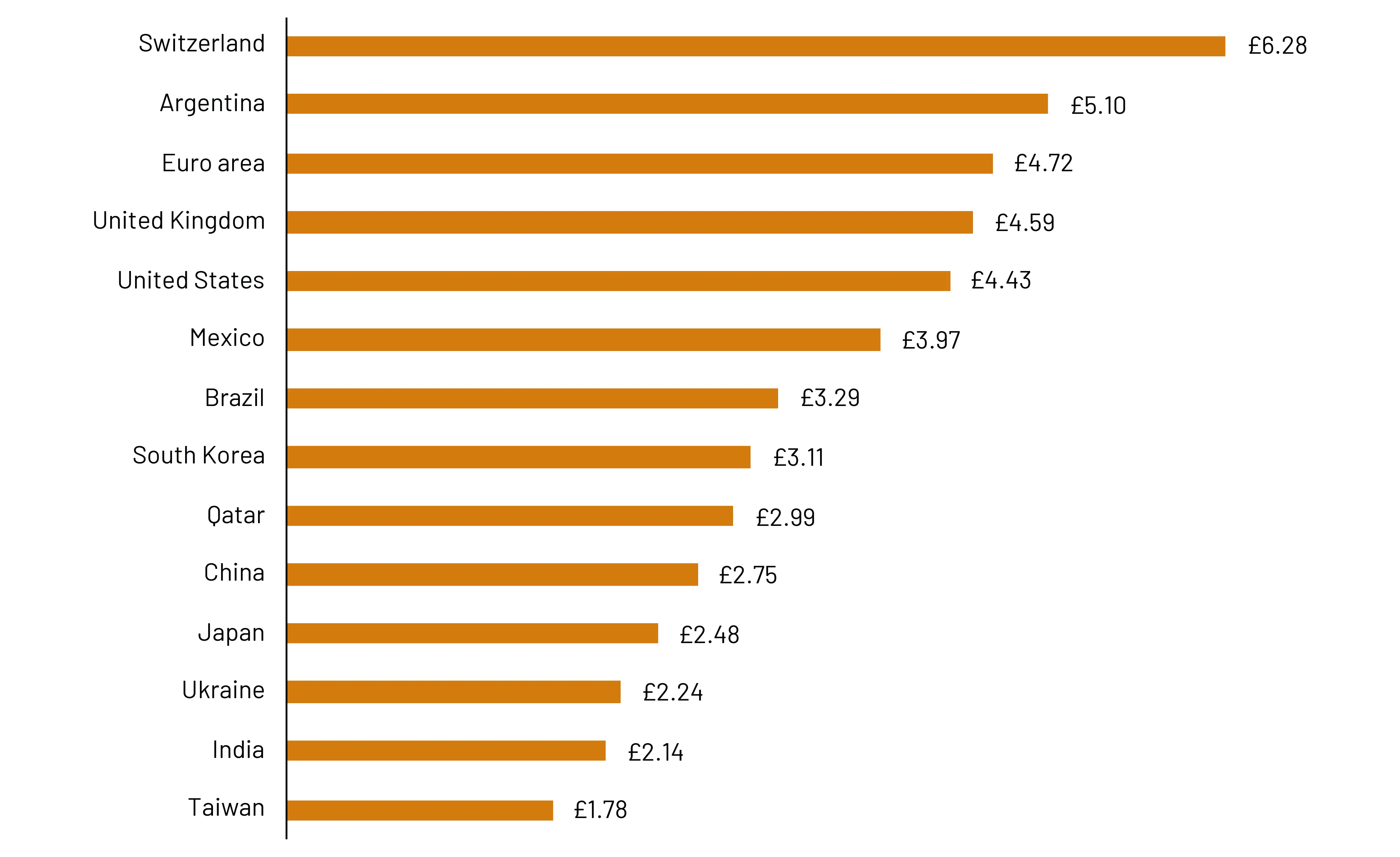
Fast food economics
As a native of South-East London, I was basically raised on pie and mash. As I got older, that habit morphed into an addiction to the local fried chicken shop, especially after closing time at my grandparents’ pub...
And I’m not alone. Fast food is part of modern life, now more than ever. The first McDonald’s arrived on our shores in 1974 (in Woolwich, just round the corner from me – I never had a chance!), and since then high streets across the UK have become saturated with ways to get fed fast.
This rise in popularity has led to lots of controversies about fast food: the role it plays in the obesity crisis; the sometimes-poor working practices, or simply the culinary offence it causes some people! And now, the fast food industry is even getting some heat in its spiritual home, the USA. Health secretary- elect Robert F Kennedy has personally vowed to clean up American diets, although I do wonder whether shifting the president away from his daily burger might be too tough a task...
Of course, behind the chips, double-stacked burgers, and those mysteriously delicious “nuggets”, fast food is a huge industry that both shapes and is shaped by the way we live. Forget business school – hit the high street on a Friday night and you’ll see a streetwise masterclass in menu psychology, profit margins and advertising.
So, with my Burger King crown investment hat on, I thought I’d take a deeper dive into what we can learn about the world from the front line of consumption culture. Let’s tuck in!
The increases in the price of food post-Covid have been some of the most tangible signs of the inflation problem (alongside petrol and heating). Our weekly shops have skyrocketed, with the average spend for a family of four rising from £82 to over £115 in the past two years.
And yet, 45% of UK consumers eat at a fast food outlet at least once a week. Because people tend to buy MORE fast food when they have less money. People see fast food as a necessity, rather than a luxury good.
Why is that? Why not stay at home, cook for themselves, and save the pennies for a future day? The answer lies as much in our minds as it does in our pockets. I think of it as the three Cs: convenience + consistency + cost.
Let’s start with convenience. We all know there are limited hours in the day. The average total time spent at a fast food outlet equals 5 minutes and 43 seconds (the exact length of Imagine by John Lennon). The average time spent doing a weekly shop being around 43 minutes (the same length as Taylor Swift’s entire Fearless album). And that’s without factoring in the cooking time. That ease, that speed, that convenience is hard to ignore, especially with delivery services making it easier than ever.
The consistency effect is also key, because our brains hate surprises. We like reality to match our expectations, and fast food is incredible at doing that. Whether you buy a Big Mac in Beijing, Rotterdam or Woolwich, you know you are getting the same thing (see Big Mac Index section further down). People tend to have their ‘order’ which they stick to throughout their lives – and when fast food firms change things, it usually backfires; McDonald’s changed its chip recipe in 1992, and certain members of my family are still livid.
And yet, 45% of UK consumers eat at a fast food outlet at least once a week. Because people tend to buy MORE fast food when they have less money. People see fast food as a necessity, rather than a luxury good.”
Lastly, there’s cost. Most people don’t apply full budgeting to every purchase. Instead, they rely on instinct. And our brains are wired to feel amazing when we get a discount, which silences the devil on our shoulder. This behavioural instinct is pounced upon by fast food businesses; with every item a ‘mega-box’ or a ‘combo- discount’ deal.
And importantly, it isn’t just the cash price that’s the “cost”. It’s the cognitive cost of doing something else; ever had a long discussion with your family about what to cook, and then ended up agreeing on a takeaway?
That’s at play every time you’re staring at the neon menu board.
Fast food knows how to keep things simple and takes advantage of our lack of processing ability. A frictionless transaction vs half an hour chopping onions and garlic? No brainer.
Taking each part of the fast food equation into account, you can see why people turn to the local chicken shop or drive-thru when they are pressed for time, strapped for cash or just done with thinking for the day.
As a £22 billion industry, fast food isn’t going away – even in the face of higher living costs. Eat-in restaurants will struggle when pennies are pinched, but chicken shop psychology means their takeaway equivalents will be just fine.
Price of a Big Mac in Sterling

Source: The Economist/7IM. Data as of July 2024
More from 7IM



I confirm that I am a Financial Adviser, Solicitor or Accountant and authorised to conduct investment business.
If you do not meet this criteria then you must leave the website or select an appropriate audience.

